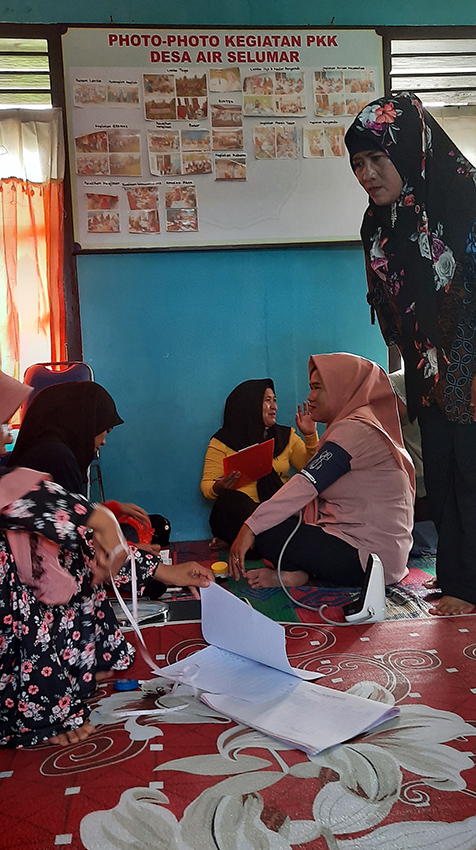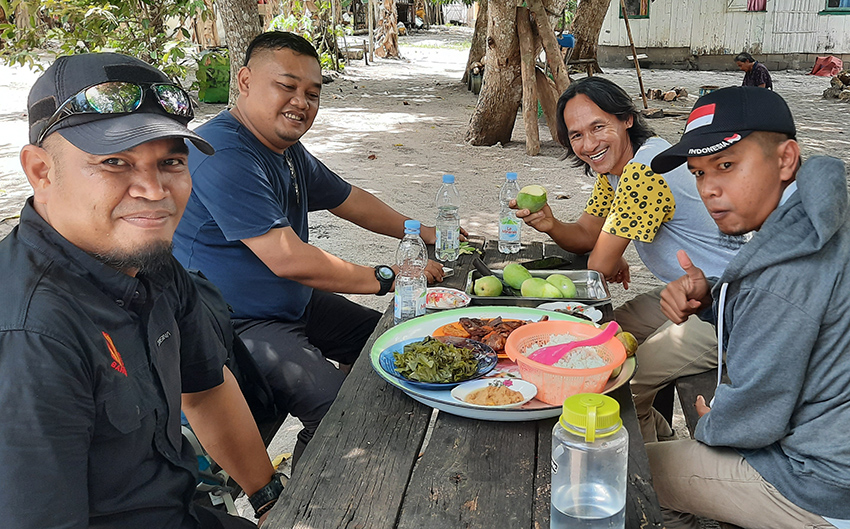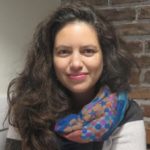Fieldwork in times of a pandemic
I was in the middle of fieldwork for my postdoctoral research project in Indonesia when the outbreak of Covid-19 started in the country. This put me in a situation of having to make important decisions over the continuation of the then present form of fieldwork.
The Indonesian government hadn’t imposed any restrictions on the mobility of people, but the risk of getting infected was becoming higher where I was, an island of around 300.000 people with ten international flights a day.
The decision to stop fieldwork was motivated by a sense of responsibility to my health and solidarity by not spreading the disease to others.
Continuous uncertainty
In the field, I was conducting an ethnographic work that involved continuous exchange with communal organizations and government officials to understand how people participated in building small-scale touristic, agricultural and fisheries projects from post-mining landscapes.
I spent my days visiting different places, chatting with people, participating in some of their initiatives and conducting interviews. It was a socially intensive period that was abruptly interrupted because of the Corona Virus.
Without a doubt, Covid-19 has modified our academic work balance and made us live in a time of continuous uncertainty. The abrupt interruption of our schedules, plans and commitments around work can definitely bring feelings of distress, anxiety and frustration. This situation is even more challenging when conducting fieldwork or working in an experimental laboratory, as daily routines in most cases are impossible to maintain.

Research on hold
Having to stop fieldwork or other work-related activities outdoors does have significant implications for our research. Not being able to pursue the research expectations we held, and as associated with our grant applications and formalized schedules, can be disappointing. Reschedules and re-planning will be necessary in order for us to continue our research.
I do believe, however, there are some elements to keep in mind to help ourselves being attuned to the current situation. The first element to remember is that no feeling of blame or culpability should be borne upon our shoulders. Suspending fieldwork is not necessarily easy but it is the most responsible action of care for ourselves and others.
Second, remember that we are not alone in this situation. I have been struggling, and in fact, most academics are struggling, to keep up work. It is not beneficial to have the self-imposed perception (or even worse, external pressure) to deliver as in normal conditions. These are not normal conditions.
New opportunities
I have found it very comforting reading these powerful pieces on ethics of care in academia in times of corona virus and why we should ignore the Coronavirus-inspired productivity pressure.
Third, once we have taken care of your personal needs and health to improve our mind set, it becomes more possible to think about new avenues for our research. Perhaps this is an opportunity to be more creative and we can find new ways to have access to information.
In my case, I can no longer visit the people and the projects in the field and sometimes having digital interviews is challenging, considering that some people do not have access to high quality internet or internet at all.
I have attempted to conduct some digital interviews when possible, but also I’m utilizing secondary sources of information in the literature. Novels and even films about the island where I conduct fieldwork have been insightful. Discussion with peers and bouncing ideas back with them to help connect strategies can be very helpful.


Diana Vela Almeida
Diana’s academic interests can be placed at the interface of political ecology, ecological economics and critical geography. Her postdoctoral research is part of a project at the Department of Geography at NTNU, which aims to extend the analysis of environmental governance to understand new forms of institutional transformations and multi-scalar political participation for the economic transitions in Belitung, Indonesia, an island that shows an interesting configuration of various natural resource-based economies.

